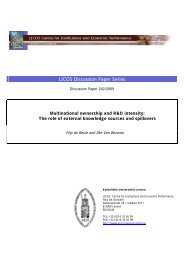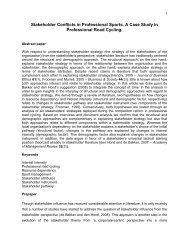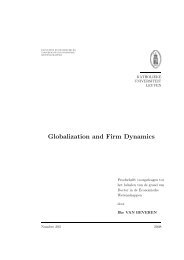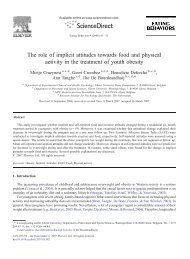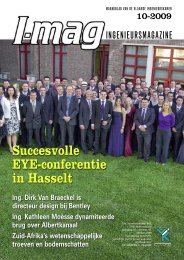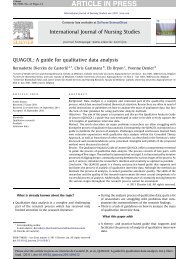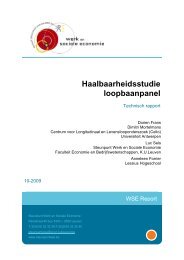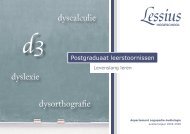View/Open - Lirias@Lessius
View/Open - Lirias@Lessius
View/Open - Lirias@Lessius
You also want an ePaper? Increase the reach of your titles
YUMPU automatically turns print PDFs into web optimized ePapers that Google loves.
Cyprus: The Belgian ‘Tool Box’ Revisited<br />
the federated entities. In this sense, in a system of coordination and rotation, one<br />
of the regional ministers represents Belgium in any area that falls in the range of<br />
exclusive competences of the regions and communities.<br />
The EU remains the framework for a more regionalized, multi-layered Belgium.<br />
It is the “greater order” into which the state system is “collapsing.” At the<br />
same time, this “EU, assisting regional development both in Europe and globally,<br />
would,” according to Luk Van Langenhove, the Director of the Comparative Regional<br />
Integration Studies Programme of the United Nations University in Bruges,<br />
“not be a movement against states. It is a way for states to respond better to<br />
the challenges of globalization. In this sense one could say that we are not moving<br />
towards a post-Westphalian order but towards a neo-Westphalian world order.” 9<br />
Comparison between the Belgian and the Cypriot Experiences<br />
Evolutionary Centrifugal Experience<br />
Since its independence in 1830 and particularly since 1970, Belgium has<br />
evolved from a unitary decentralized bi-ethnic monarchy into a “Multi-tier post-<br />
Westphalian Federal State” where decision-making power is no longer exclusively<br />
in the hands of the Federal Government or Parliament but rather falls to several<br />
partners that exercise their competences independently in different fields. This redistribution<br />
follows two distinct lines: language and culture-based communities,<br />
and territorial and economic based regions. The Belgian system is therefore the<br />
result of a long list of complex package-deals and compromises that have been dynamically<br />
political-process-based rather than purely and rigidly legal-text-based.<br />
The political processes aimed at facilitating the co-existence of the two major<br />
communities, one French-speaking and one Dutch-speaking, in a state structure<br />
that would incorporate the necessary guarantees to maintain balance between its<br />
components. This has not been an easy task, and the country has gone through<br />
many periods of serious crisis, but in all cases centrifugal compromises (meaning<br />
the vesting of more and more powers, top down, exclusively in the communities<br />
and regions) have been translated into concrete and mutually acceptable policy<br />
measures and reforms. The continuous stream of compromises in Belgium has<br />
led to a gradual, but very fundamental reform of the Belgian state – a constructive<br />
and cooperative evolutionary process, which has not yet come to an end. Whether<br />
this will result in the smoother functioning of the system depends on the cooperation<br />
and consent of both sides and on how this evolution will take shape. If<br />
one of the two sides refuses to discuss an issue or vital concern, the federalization<br />
process will come to a dead end, with the risk of disintegrating the common state.<br />
119



